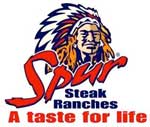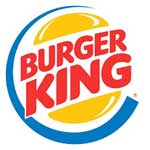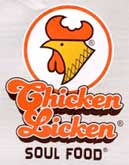
Related
Top stories


ESG & SustainabilityStandard Bank gives Unisa’s climate loss and damage research R1m boost
48 minutes




More news

Marketing & Media
Prisa's Bradley Howland: The importance of professional associations










The continent, with its mushrooming middle class and large expatriate community, is being seen by consumer industries as the next region for long-term growth.
Consumer spending accounts for over 60% of sub-Saharan Africa's GDP, and in 2012 about a quarter of countries in the region grew GDP at 7% or more. Several, like Sierra Leone, Niger and Côte d'Ivoire, are among the fastest-growing in the world. Overall, the region is forecast to expand at more than 5% over the next three years, far outpacing the global average, according to the World Bank.
Kevin Hedderwick, chief executive of JSE-listed Famous Brands, says the group will double the size of its African presence. "By 2016 we would like to have 400 restaurants outside SA," he says. "Top of our radar are Nigeria, Ghana, Angola, Kenya and Zambia."
Operating in 15 countries in Africa, the group began its expansion in the late 1990s. Its reach also extends to India and the UK. "I always tell people we've paid our school fees, we're quite a long way up the learning curve," Hedderwick says.
Continued growth in pizza consumption per capita in the huge market of lower living standards measure (LSM) consumers and desire for convenience among upper LSM consumers has put Debonairs Pizza ahead of its mother brand Steers in the popularity contest. Demand for its triple-decker pizzas and subs has surged and its "rest of Africa" region now accounts for 15,9% of the brand's total sales.
Another local stalwart, Spur, is also ratcheting up its presence.

Hotel, supermarket and retail development has been one of the major factors driving expansion, says Pierre van Tonder, Spur's chief executive, adding that this has resulted in opportunities for casual dining and fast-food quick service restaurants (QSR) to open.
Spur, which also owns Panarottis, trades through 24 stores and has more outlets planned for the next 12 to 18 months in Nigeria, Zambia, Namibia and Mozambique.
36One Asset Management equity analyst Daniel Isaacs says there is a global trend to eat out.
"Our grandparents could make a four-course meal with an onion and a carrot. I think today most people don't even know how to cook. The structure of family life is also changing, with a dual income needed to keep up with costs. So convenience is a huge driving factor. Eating out used to be a luxury, a huge event, but it's become a lot more affordable," he says.
This is especially the case in SA, where a cash-rich and time-poor middle class has led to a greater use of quick-service dining over formal restaurants and preparing food at home, despite the macroeconomic conditions.
"Food service in the country can only grow. In emerging markets, for every 1% growth in GDP there's 2% growth in food service," Hedderwick says.
"As consumers in the rest of Africa start to get into higher GDP per capita brackets, their spending on leisure goods increases," Isaacs says.
The search for higher yield has drawn international interest too. NYSE-listed Burger King entered a joint venture with SA gaming and leisure group Grand Parade Investments in line with its aim to grow its brand presence in high-growth emerging markets.
The Home of the Whopper's first store in SA rang up sales of R4,9m in just seven weeks.

"Part of our master franchise agreement is that we have the rights to Namibia, Botswana, Zambia, Zimbabwe, Mozambique and Mauritius. We feel there's definitely a market for us and we're looking at getting across our borders," says Burger King SA's chief executive Jaye Sinclair.
Though most of the prime sites in SA have already been snapped up by bigger operators, Sinclair says mall owners, managers and letting agents are "falling over themselves" trying to offer Burger King locations because consumers want differentiation "from tired old brands".
The US's Subway sandwich franchise, owned by Doctor's Associates, has about 30 restaurants in Africa and aims to open 20 in Kenya over the next six years and others in SA and Zambia, while the largest pizza chain worldwide, NYSE-listed Domino's Pizza, opened two restaurants in Nigeria last year and is exploring expansion opportunities in Kenya and SA.
NYSE-listed Yum! Restaurants International already has close on 1000 KFCs in 18 African countries. "Africa has over 1bn people, most of whom love chicken, and we believe KFC has the best-tasting chicken, so it is a match made in heaven. Nigeria, with its population size, is often seen as the best location, but countries like Angola have higher levels of disposable income," says Bruce Layzell, KFC's general manager of new African markets.
Others are coy about their plans to expand. US giant McDonald's, which serves 8m customers a month in SA, says its business is well positioned for expansion into Africa; however, its focus remains on local opportunities.
Africa is proving an irresistible sweet spot for Nasdaq-listed ice-cream and doughnut franchisor Dunkin' Brands, which will open up to 100 Baskin-Robbins outlets in SA over the long term.
"Eighteen months after the rollout of Baskin-Robbins, we will open Dunkin' Donuts," says Jeremy Vitaro, Dunkin' Brands vice-president of international development.
One of the largest US franchising companies, Kahala Corp, is also eyeing Africa through its Cold Stone Creamery ice-cream brand. It opened an outlet in Nigeria last year after signing a master franchise agreement with Nigerian group Ivybridge Trading, and says the region can handle as many as nine stores over the next five years.
With all Africa's promise, though, there is a caveat: the continent is not an easy place in which to do business. QSR operators face a particular challenge, because most of the ingredients in their offerings are perishable, placing complex logistics constraints on supply chains.

"Many countries have import restrictions and under-developed local suppliers. This means it takes up to two years to develop local competence and capacity before we can open our stores," Layzell says.
Goods such as packaging, uniforms, crockery and point-of-sale material are easier to move, but logistics remain a challenge, as the territories have varying interpretations of import regulations.
In Famous Brands' case, after signing confidentiality agreements, the group works with master licensees or local suppliers to use their recipes to manufacture products like burger patties or buns.
Chicken Licken, which has 247 stores across SA, says it made a "gallant" effort to expand further into the continent, but inconsistent chicken supplies and "unscrupulous" franchisees forced it to withdraw. "Harare had four Chicken Licken outlets, which were doing extremely well; one of them was a top performer in the entire group. Until the country ran out of foreign exchange to pay for the ingredients.
"We opened five shops in Nigeria eight years ago, but they closed down due to issues with the franchisee, who wanted to re-franchise to others at a lower rate and loosen quality control. Nigeria has no steady electricity supply and the cost of fuel to run the generators is a problem. Also, Nigeria has only 30m chickens. The largest producer is the former president, and he won't let you import chicken, so you're finished," the group's founder, George Sombonos, says.
The 31-year-old company, which has 12 stores in Botswana, is the biggest non-American fried chicken franchise in the world. "We are awaiting the expansion of Rainbow Chicken into other African countries. That way we know we will have enough quantity and quality chickens. They bought a chicken farm in Zambia recently so we'll consider opening up there in the near future," Sombonos adds.
Africa's glut of informal markets and under-developed retail infrastructure mean the rental asked is often exorbitant. Companies that rely heavily on centralised distribution also have to grapple with poor road infrastructure, which leads to heavy traffic delays.
"When you do find it [locations], they're expensive because they're not easy to come by," Hedderwick says, adding that finding a local partner who shares the same agenda and a passion for food services is key.
And as most people in Africa have local tastes, choose to eat at home or like locally produced food, international chains will have to adjust some of their menu items to appeal to local tastes, says Shereen Tuff, a senior research analyst at Euromonitor International.
While Africa may be the market for the future, QSR opertors will need a jumbo-sized appetite for patience for the obstacles the continent serves up
Source: Financial Mail via I-Net Bridge

For more than two decades, I-Net Bridge has been one of South Africa’s preferred electronic providers of innovative solutions, data of the highest calibre, reliable platforms and excellent supporting systems. Our products include workstations, web applications and data feeds packaged with in-depth news and powerful analytical tools empowering clients to make meaningful decisions.
We pride ourselves on our wide variety of in-house skills, encompassing multiple platforms and applications. These skills enable us to not only function as a first class facility, but also design, implement and support all our client needs at a level that confirms I-Net Bridge a leader in its field.
Go to: http://www.inet.co.za